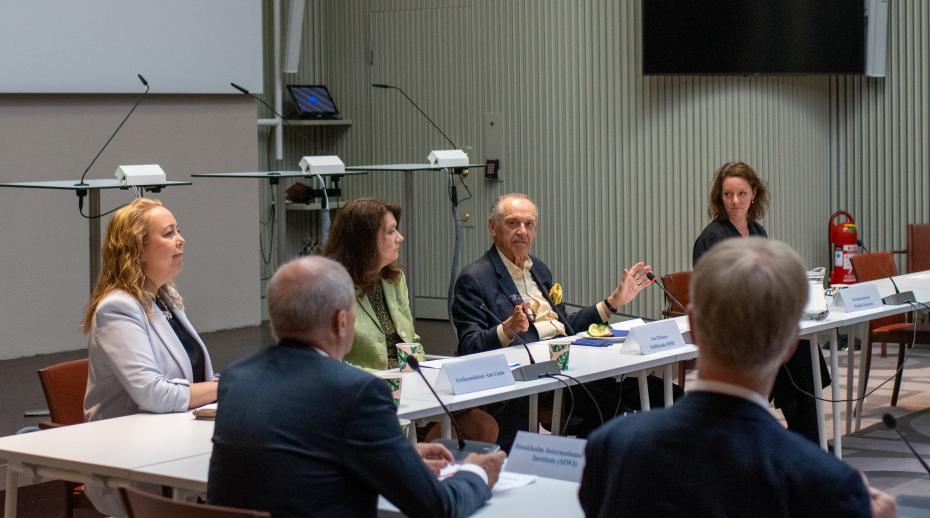
This week saw the relaunch of the Stockholm Hub on Environment, Climate and Security, a cross-institutional research collaboration supported by the Swedish Ministry for Foreign Affairs (MFA). The event took place on 18 May and was hosted by the Swedish MFA.
Ahead of the 50th anniversary of the United Nations Conference on the Human Environment (Stockholm+50) and the 2022 UN Climate Change Conference (COP27), the round-table discussion sought to inspire participants in their efforts and contributions to address the compound drivers of environmental change and human insecurity.
Sigrún Rawet, Head of the Global Agenda Department of the Swedish MFA, opened the floor to Ambassador Jan Eliasson, Chair of the SIPRI Governing Board, who provided introductory remarks. These were then followed by remarks from Ann Linde, Minister for Foreign Affairs of Sweden, and Matilda Ernkrans, Minister for International Development Cooperation. After comments by the directors of the three additional institutes that make up the Hub—the Stockholm Environment Institute (SEI), the Stockholm International Water Institute (SIWI) and the Stockholm Resilience Centre (SRC)—Dan Smith, SIPRI Director, moderated the discussion.
The relaunch of the Hub brought together representatives from the Swedish MFA and the Ministry of the Environment and the four leading Stockholm-based research institutes, as well as heads and senior representatives of a number of other Swedish authorities and institutes active in the field of environment and climate change.
About the Stockholm Hub on Environment, Climate and Security
The Stockholm Hub on Environment, Climate and Security combines the strengths of four leading Stockholm-based research institutes—SIPRI, the Stockholm Environment Institute (SEI), the Stockholm International Water Institute (SIWI) and the Stockholm Resilience Centre (SRC). Following a successful first phase, the Hub will continue to contribute knowledge on how social and environmental processes interact with human insecurity, tensions and conflicts. It will provide evidence-based insights on how transformative solutions can build security and prosperity and strengthen societies’ resilience in the face of a changing climate and environmental degradation.